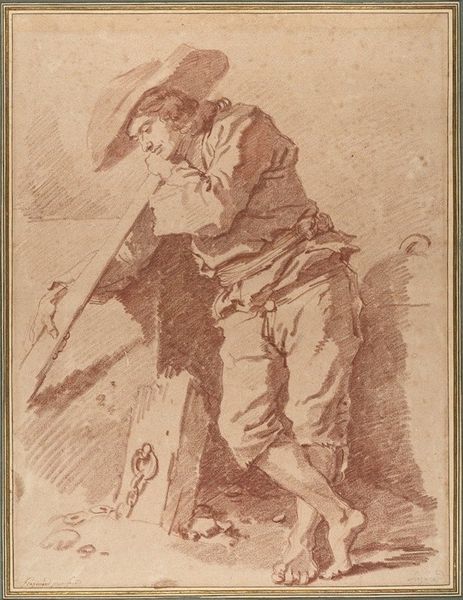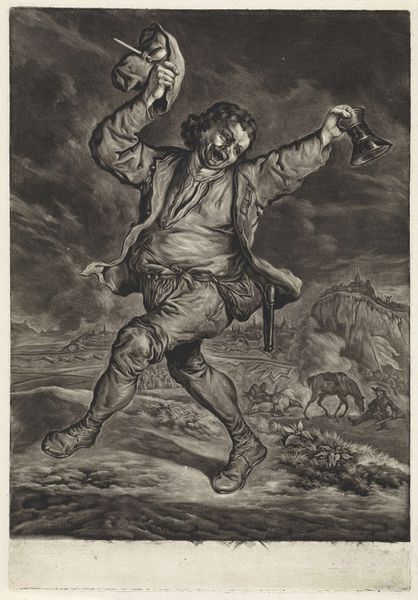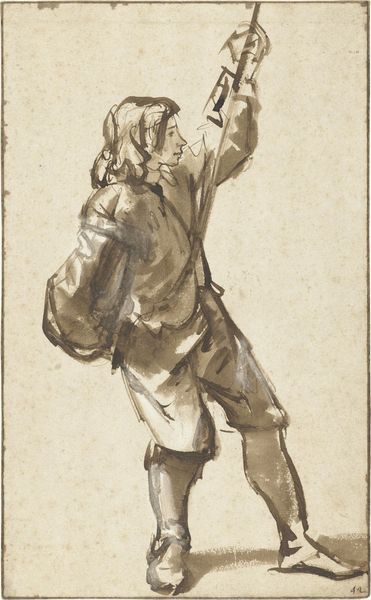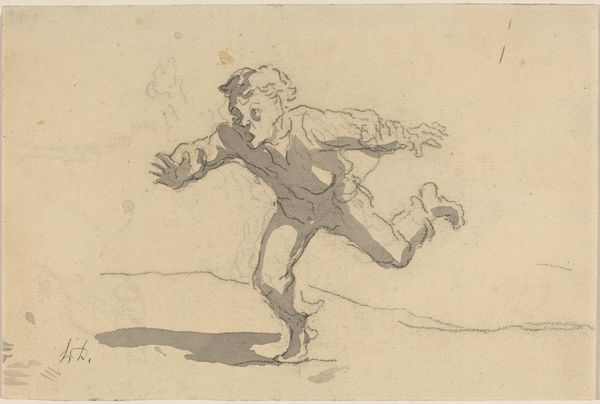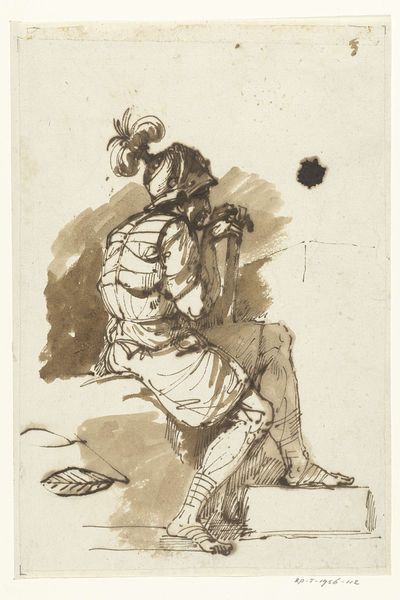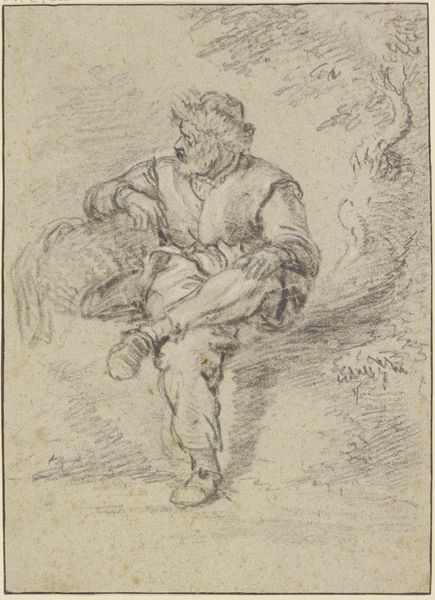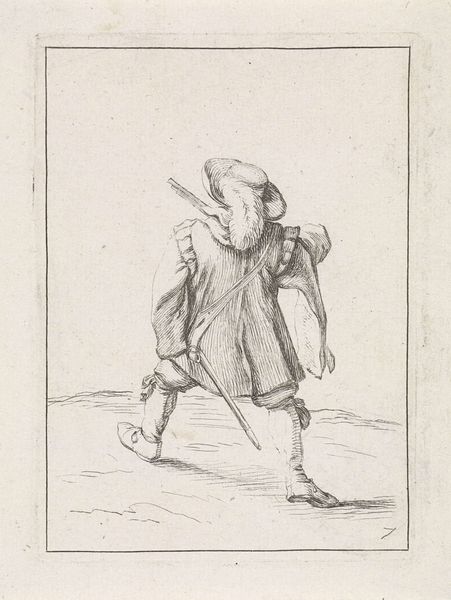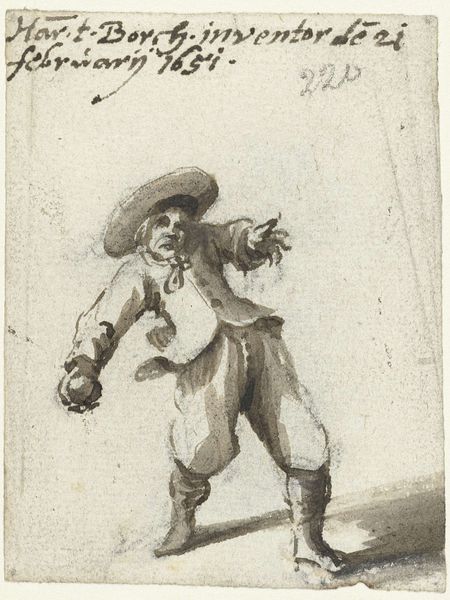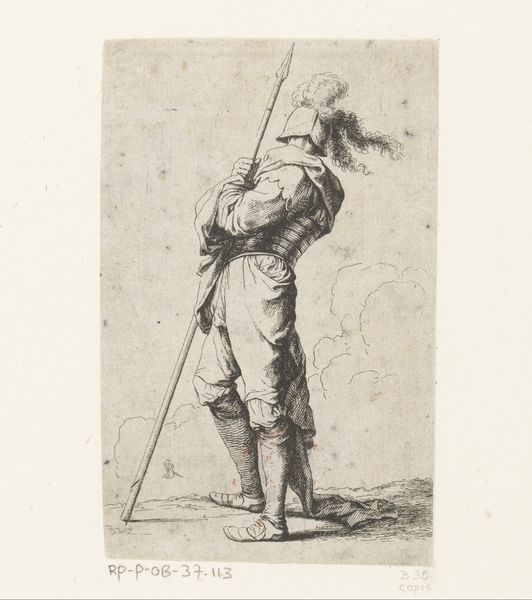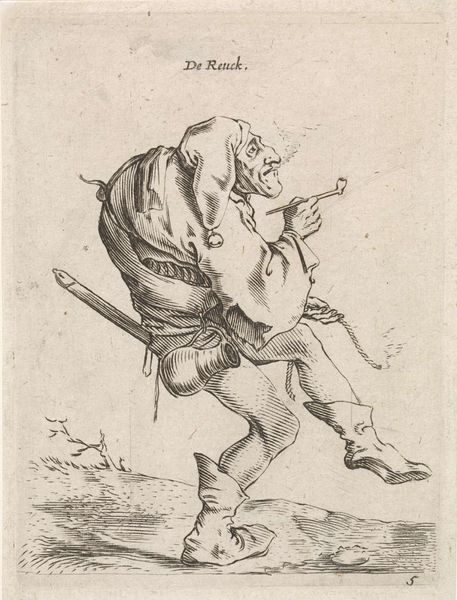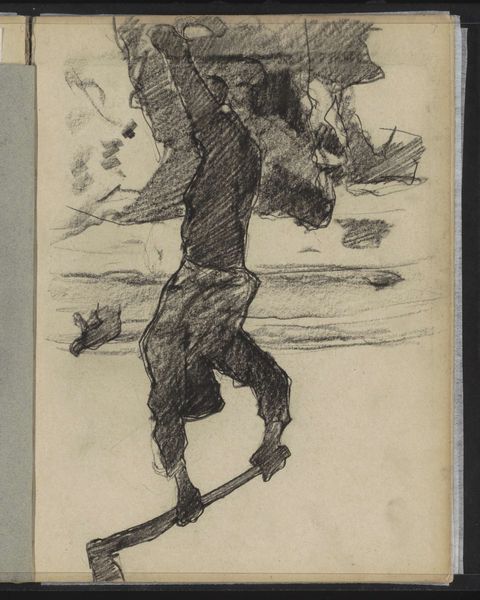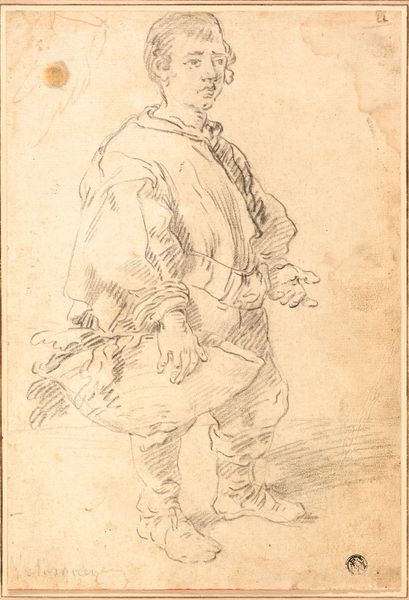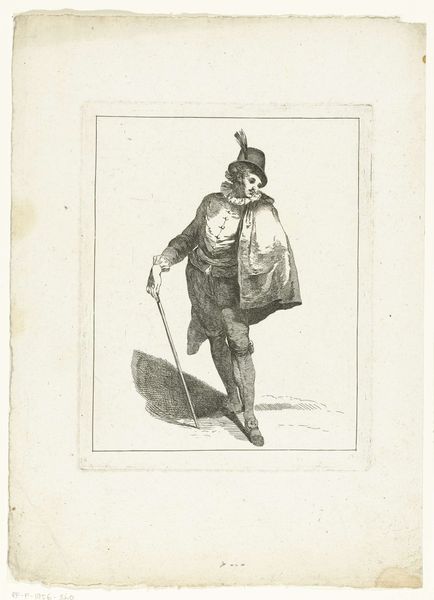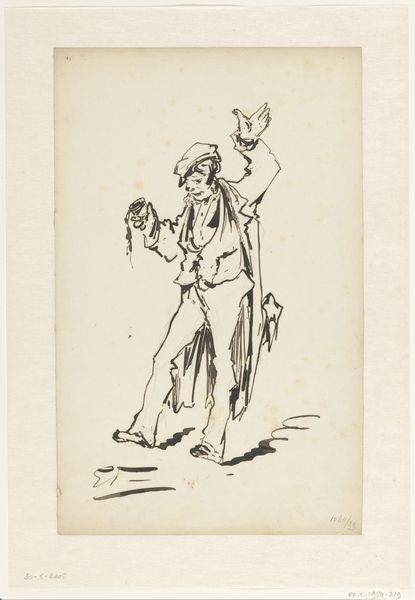
drawing, ink
#
drawing
#
baroque
#
landscape
#
figuration
#
ink
#
genre-painting
Dimensions: height 204 mm, width 157 mm
Copyright: Rijks Museum: Open Domain
This drawing, made by Cornelis Dusart, captures a drummer, a seemingly simple figure rendered in ink. But let us delve deeper than the surface. The drummer, with his rhythmic beat, is a symbol of rhythm and order, an archetype reappearing across cultures and epochs. In ancient Greece, rhythmic drumming was a Bacchic ritual, inducing trance. In the Middle Ages, drums signaled gatherings, both festive and martial, conveying messages and rousing emotions. Here, the drummer’s frenetic energy is unmistakable. The instrument is a primal symbol that speaks to the subconscious, awakening collective memories of gatherings, rituals, and calls to arms. Across time, the drum has evolved, yet it retains its primal power, its beat echoing through history, a constant reminder of the rhythms that bind us.
Comments
rijksmuseum about 2 years ago
⋮
This drummer and the peepshow boy originally formed part of a large set of depictions of hucksters, journeymen and fairground vendors. Perhaps the drawings were intended for a series of prints, however the plan was never realized. These sets were known as ‘street cries’, after the way the hawkers shouted out their wares and services.
Join the conversation
Join millions of artists and users on Artera today and experience the ultimate creative platform.
